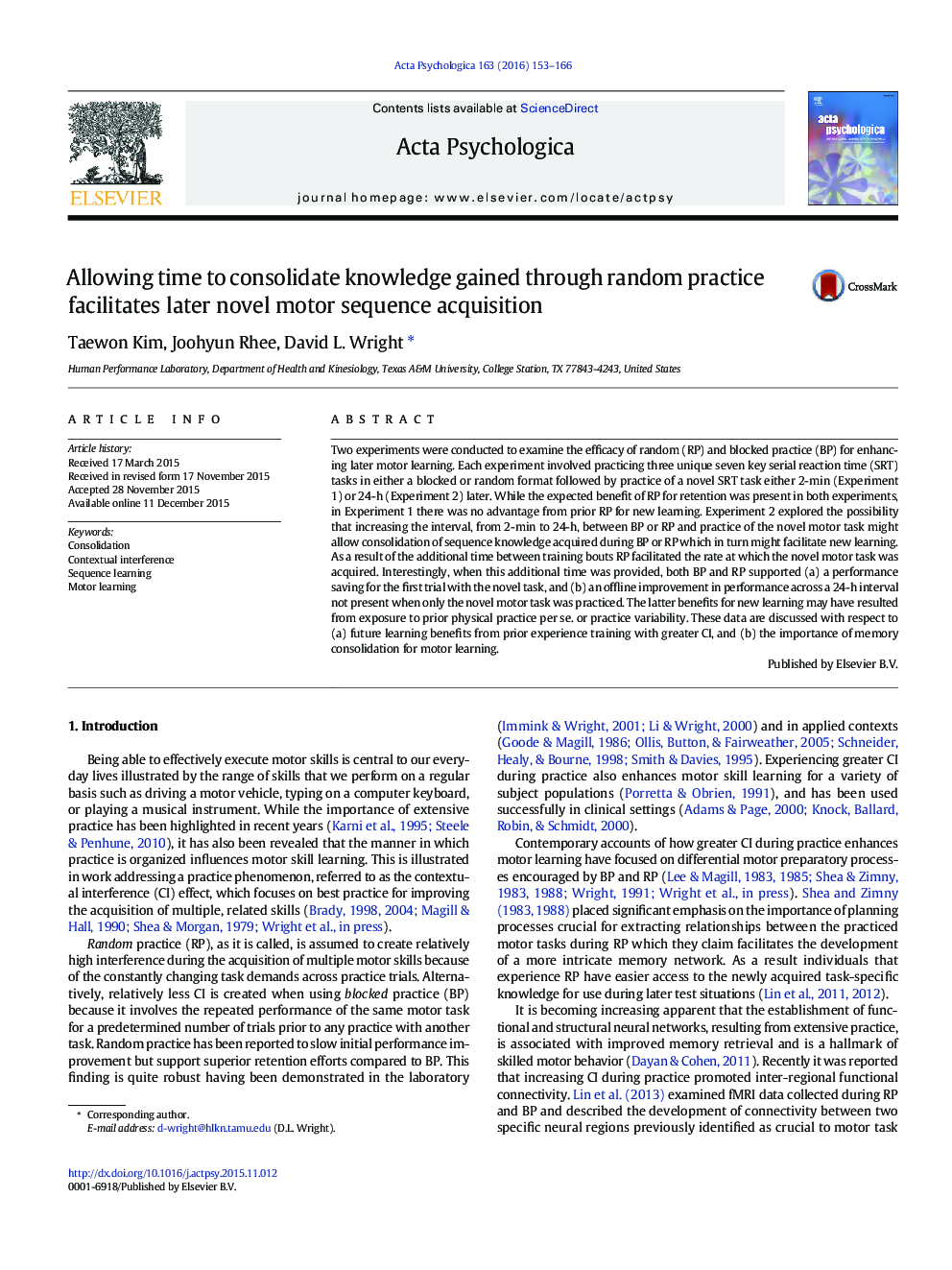| Article ID | Journal | Published Year | Pages | File Type |
|---|---|---|---|---|
| 7277177 | Acta Psychologica | 2016 | 14 Pages |
Abstract
Two experiments were conducted to examine the efficacy of random (RP) and blocked practice (BP) for enhancing later motor learning. Each experiment involved practicing three unique seven key serial reaction time (SRT) tasks in either a blocked or random format followed by practice of a novel SRT task either 2-min (Experiment 1) or 24-h (Experiment 2) later. While the expected benefit of RP for retention was present in both experiments, in Experiment 1 there was no advantage from prior RP for new learning. Experiment 2 explored the possibility that increasing the interval, from 2-min to 24-h, between BP or RP and practice of the novel motor task might allow consolidation of sequence knowledge acquired during BP or RP which in turn might facilitate new learning. As a result of the additional time between training bouts RP facilitated the rate at which the novel motor task was acquired. Interestingly, when this additional time was provided, both BP and RP supported (a) a performance saving for the first trial with the novel task, and (b) an offline improvement in performance across a 24-h interval not present when only the novel motor task was practiced. The latter benefits for new learning may have resulted from exposure to prior physical practice per se. or practice variability. These data are discussed with respect to (a) future learning benefits from prior experience training with greater CI, and (b) the importance of memory consolidation for motor learning.
Related Topics
Life Sciences
Neuroscience
Cognitive Neuroscience
Authors
Taewon Kim, Joohyun Rhee, David L. Wright,
